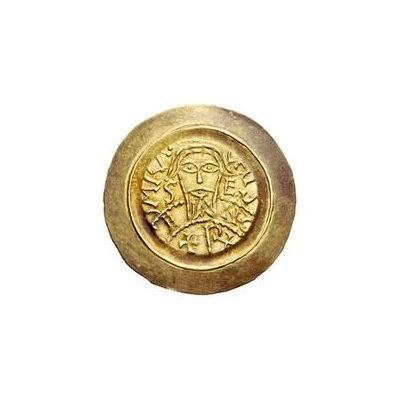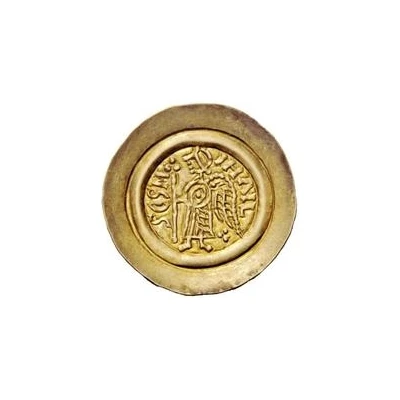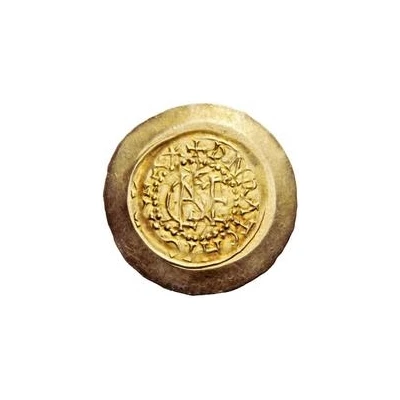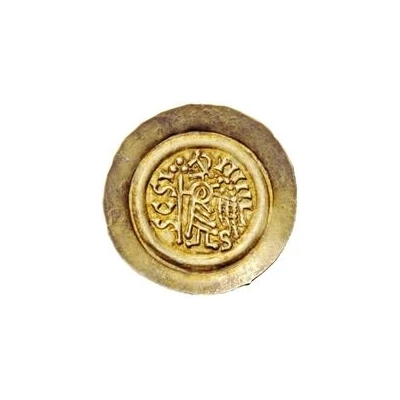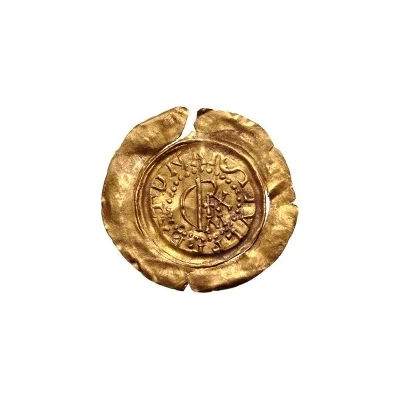
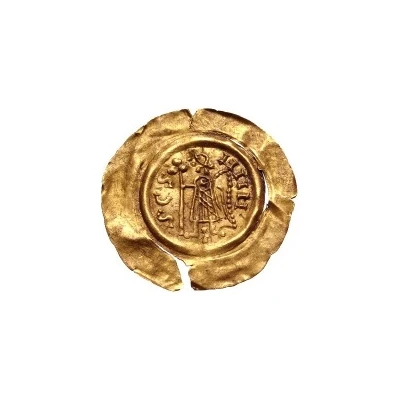

© Classical Numismatic Group, Inc.
1 Tremissis - Aistulf / In the name of Uncertain Monogram
| Gold | 0.96 g | 23 mm |
| Issuer | Lombardy and Tuscany (Lombard Kingdom) |
|---|---|
| King | Aistulf (749-756) |
| Type | Standard circulation coin |
| Years | 749-756 |
| Value | 1 Tremissis |
| Currency | Tremissis (653-774) |
| Composition | Gold |
| Weight | 0.96 g |
| Diameter | 23 mm |
| Shape | Round (irregular) |
| Technique | Hammered |
| Demonetized | Yes |
| Updated | 2024-10-10 |
| Numista | N#144800 |
|---|---|
| Rarity index | 100% |
Reverse
Winged Saint Michael holding staff and shield while facing left, all surrounded by legend.
Script: Latin
Lettering: SCS - IIIIII
Translation:
Sanctae Michael
Saint Michael
Engraver: M-
Edge
Plain
Comment
The letter beneath the monogram is most likely the initial of the engraver, as it is in a similar position to the initials found on examples with busts on the obverse.There is some mystery of what the monogram actually means. According to BMC Vandal, the monogram means Christianus Rex; according to Bernareggi, the monogram could mean Dominus Noster Rex. Another idea (proposed by Gariel) is that is means Charlemagne Rex, which would recognize his suzerainty over the Lombard Kingdom. Even so, making Dominus Noster Rex as a monogram would be redundant, Charlemagne was not king when the monogram was first used, and naming a Danish king would be odd.
Interesting fact
One interesting fact about the Standard circulation coin 1 Tremissis - Aistulf / In the name of Uncertain Monogram (749-756) from Lombardy and Tuscany (Lombard Kingdom) made of Gold weighing 0.96 g is that it was minted during a time of great political and economic change in Europe. The Lombard Kingdom, which was a Germanic kingdom that ruled much of Italy from the 6th to the 8th centuries, was in power during the time this coin was minted. The coin's design, which features an uncertain monogram, suggests that it may have been minted during a period of instability or transition within the kingdom. Despite this, the coin remains a valuable piece of history and a testament to the craftsmanship and economic systems of the time.
